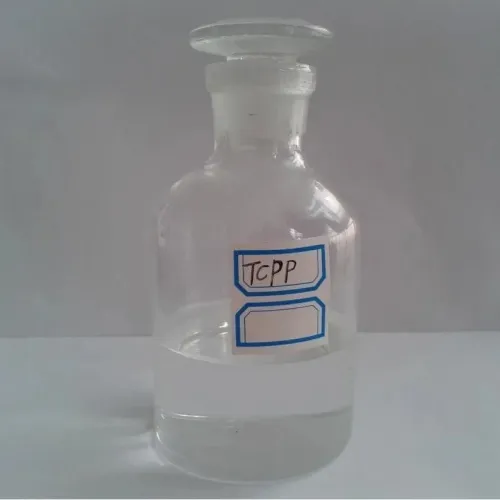Warning: Undefined array key "title" in /home/www/wwwroot/HTML/www.exportstart.com/wp-content/themes/1198/header.php on line 6
Warning: Undefined array key "file" in /home/www/wwwroot/HTML/www.exportstart.com/wp-content/themes/1198/header.php on line 7
Warning: Undefined array key "title" in /home/www/wwwroot/HTML/www.exportstart.com/wp-content/themes/1198/header.php on line 7
Warning: Undefined array key "title" in /home/www/wwwroot/HTML/www.exportstart.com/wp-content/themes/1198/header.php on line 7
- Afrikaans
- Albanian
- Amharic
- Arabic
- Armenian
- Azerbaijani
- Basque
- Belarusian
- Bengali
- Bosnian
- Bulgarian
- Catalan
- Cebuano
- China
- China (Taiwan)
- Corsican
- Croatian
- Czech
- Danish
- Dutch
- English
- Esperanto
- Estonian
- Finnish
- French
- Frisian
- Galician
- Georgian
- German
- Greek
- Gujarati
- Haitian Creole
- hausa
- hawaiian
- Hebrew
- Hindi
- Miao
- Hungarian
- Icelandic
- igbo
- Indonesian
- irish
- Italian
- Japanese
- Javanese
- Kannada
- kazakh
- Khmer
- Rwandese
- Korean
- Kurdish
- Kyrgyz
- Lao
- Latin
- Latvian
- Lithuanian
- Luxembourgish
- Macedonian
- Malgashi
- Malay
- Malayalam
- Maltese
- Maori
- Marathi
- Mongolian
- Myanmar
- Nepali
- Norwegian
- Norwegian
- Occitan
- Pashto
- Persian
- Polish
- Portuguese
- Punjabi
- Romanian
- Russian
- Samoan
- Scottish Gaelic
- Serbian
- Sesotho
- Shona
- Sindhi
- Sinhala
- Slovak
- Slovenian
- Somali
- Spanish
- Sundanese
- Swahili
- Swedish
- Tagalog
- Tajik
- Tamil
- Tatar
- Telugu
- Thai
- Turkish
- Turkmen
- Ukrainian
- Urdu
- Uighur
- Uzbek
- Vietnamese
- Welsh
- Bantu
- Yiddish
- Yoruba
- Zulu
Nov . 18, 2024 14:15 Back to list
aspartame *
Understanding Aspartame Benefits, Concerns, and Insights
Aspartame, an artificial sweetener, has been a topic of discussion since its discovery in 1965. Widely used as a sugar substitute in numerous food and beverage products, it has gained popularity for its ability to provide sweet flavor without the calories associated with sugar. However, its safety and health implications have sparked debates among scientists, health professionals, and the general public.
Aspartame is approximately 200 times sweeter than sucrose (table sugar), allowing manufacturers to use it in minimal quantities while achieving the desired sweetness in a product. This trait makes it particularly appealing to those managing their weight or those with diabetes who seek to reduce sugar intake. Products such as diet sodas, sugar-free gum, and various low-calorie snacks prominently feature aspartame as a key ingredient.
Understanding Aspartame Benefits, Concerns, and Insights
One of the most significant topics of debate surrounding aspartame is its association with various health concerns, ranging from headaches and allergic reactions to more severe issues like cancer. Reports of adverse reactions have arisen over the years, leading consumers to question the sweetener's safety. However, comprehensive reviews and studies have found no conclusive evidence linking aspartame with these health risks when consumed within recommended limits. For example, the EFSA's 2013 assessment reaffirmed that aspartame is safe for human consumption and does not pose a risk of cancer.
aspartame *

Despite reassurances from health organizations, public perception of aspartame remains mixed. Some consumers actively seek alternatives to aspartame, preferring natural sweeteners such as stevia or honey, while others choose to avoid artificial sweeteners entirely. This consumer behavior often stems from growing awareness and concern over food additives and their potential health consequences. The popularity of clean eating and more natural food options has heightened scrutiny of artificial ingredients, including aspartame.
For individuals with phenylketonuria (PKU), a rare genetic disorder, aspartame poses a significant health risk. People with PKU cannot metabolize phenylalanine, one of aspartame's breakdown products. As a result, they must avoid aspartame and products containing it to prevent adverse health effects. This consideration has led to mandatory labeling of aspartame in foods and beverages, ensuring that those affected can make informed choices.
In recent years, the conversation surrounding aspartame has expanded beyond health implications to include environmental impacts and consumer rights. As manufacturers reformulate products in response to consumer demand for healthier options, aspartame's role in the food industry continues to evolve. Additionally, the rise of veganism and the push for more sustainable food sources have led to increased interest in natural sweeteners.
In conclusion, aspartame remains a widely used artificial sweetener that has undergone extensive scrutiny regarding its safety and health effects. While major health organizations have deemed it safe for the general population, individual preferences and sensitivities continue to affect consumer choices. As awareness of dietary ingredients grows, so too does the need for transparent labeling and education on food additives. Understanding aspartame and its implications can empower consumers to make informed decisions and navigate the complex landscape of modern nutrition, ultimately promoting healthier lifestyle choices.
Latest news
-
Certifications for Vegetarian and Xanthan Gum Vegetarian
NewsJun.17,2025
-
Sustainability Trends Reshaping the SLES N70 Market
NewsJun.17,2025
-
Propylene Glycol Use in Vaccines: Balancing Function and Perception
NewsJun.17,2025
-
Petroleum Jelly in Skincare: Balancing Benefits and Backlash
NewsJun.17,2025
-
Energy Price Volatility and Ripple Effect on Caprolactam Markets
NewsJun.17,2025
-
Spectroscopic Techniques for Adipic Acid Molecular Weight
NewsJun.17,2025

